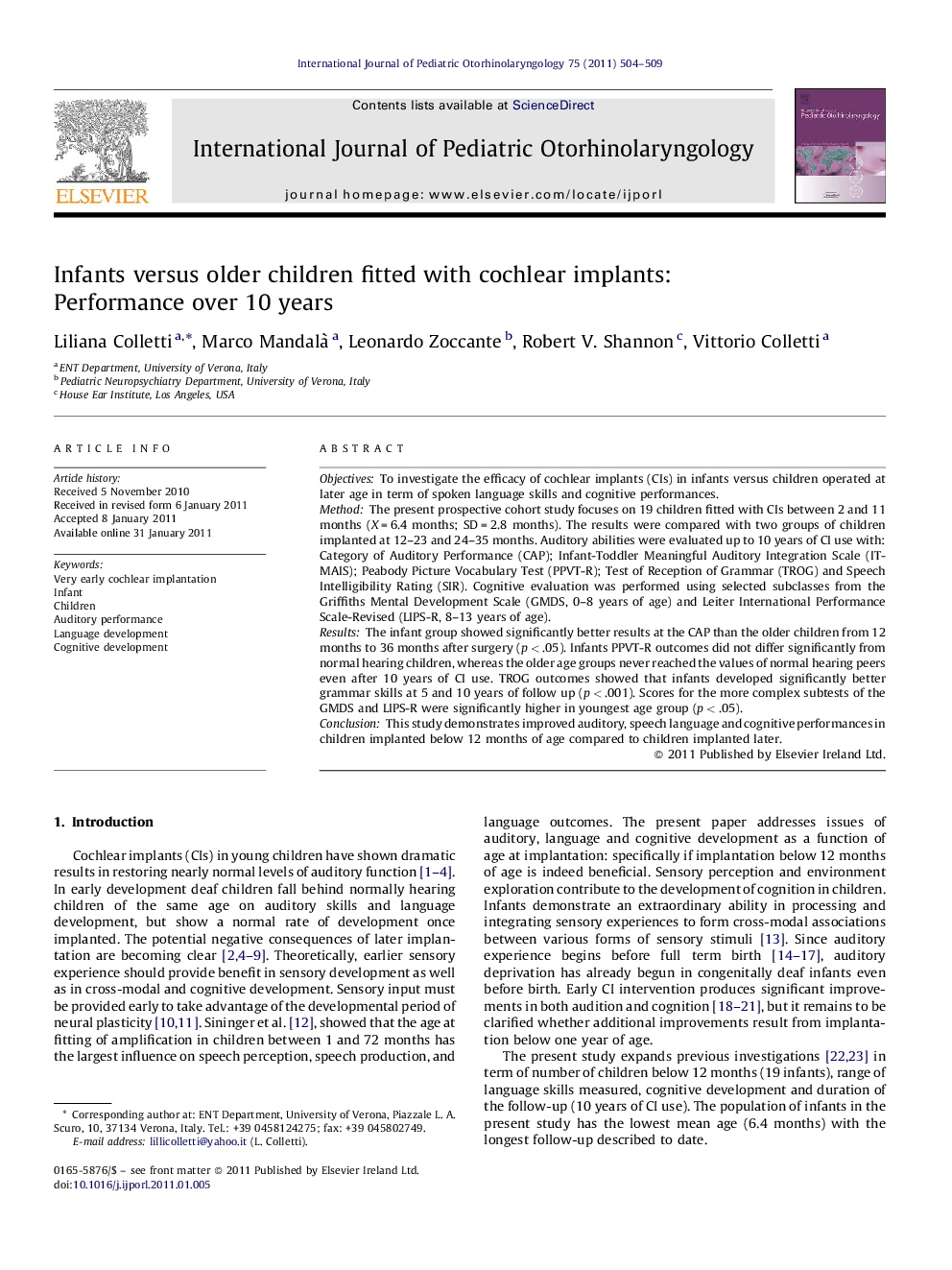| Article ID | Journal | Published Year | Pages | File Type |
|---|---|---|---|---|
| 6214047 | International Journal of Pediatric Otorhinolaryngology | 2011 | 6 Pages |
ObjectivesTo investigate the efficacy of cochlear implants (CIs) in infants versus children operated at later age in term of spoken language skills and cognitive performances.MethodThe present prospective cohort study focuses on 19 children fitted with CIs between 2 and 11 months (X = 6.4 months; SD = 2.8 months). The results were compared with two groups of children implanted at 12-23 and 24-35 months. Auditory abilities were evaluated up to 10 years of CI use with: Category of Auditory Performance (CAP); Infant-Toddler Meaningful Auditory Integration Scale (IT-MAIS); Peabody Picture Vocabulary Test (PPVT-R); Test of Reception of Grammar (TROG) and Speech Intelligibility Rating (SIR). Cognitive evaluation was performed using selected subclasses from the Griffiths Mental Development Scale (GMDS, 0-8 years of age) and Leiter International Performance Scale-Revised (LIPS-R, 8-13 years of age).ResultsThe infant group showed significantly better results at the CAP than the older children from 12 months to 36 months after surgery (p < .05). Infants PPVT-R outcomes did not differ significantly from normal hearing children, whereas the older age groups never reached the values of normal hearing peers even after 10 years of CI use. TROG outcomes showed that infants developed significantly better grammar skills at 5 and 10 years of follow up (p < .001). Scores for the more complex subtests of the GMDS and LIPS-R were significantly higher in youngest age group (p < .05).ConclusionThis study demonstrates improved auditory, speech language and cognitive performances in children implanted below 12 months of age compared to children implanted later.
